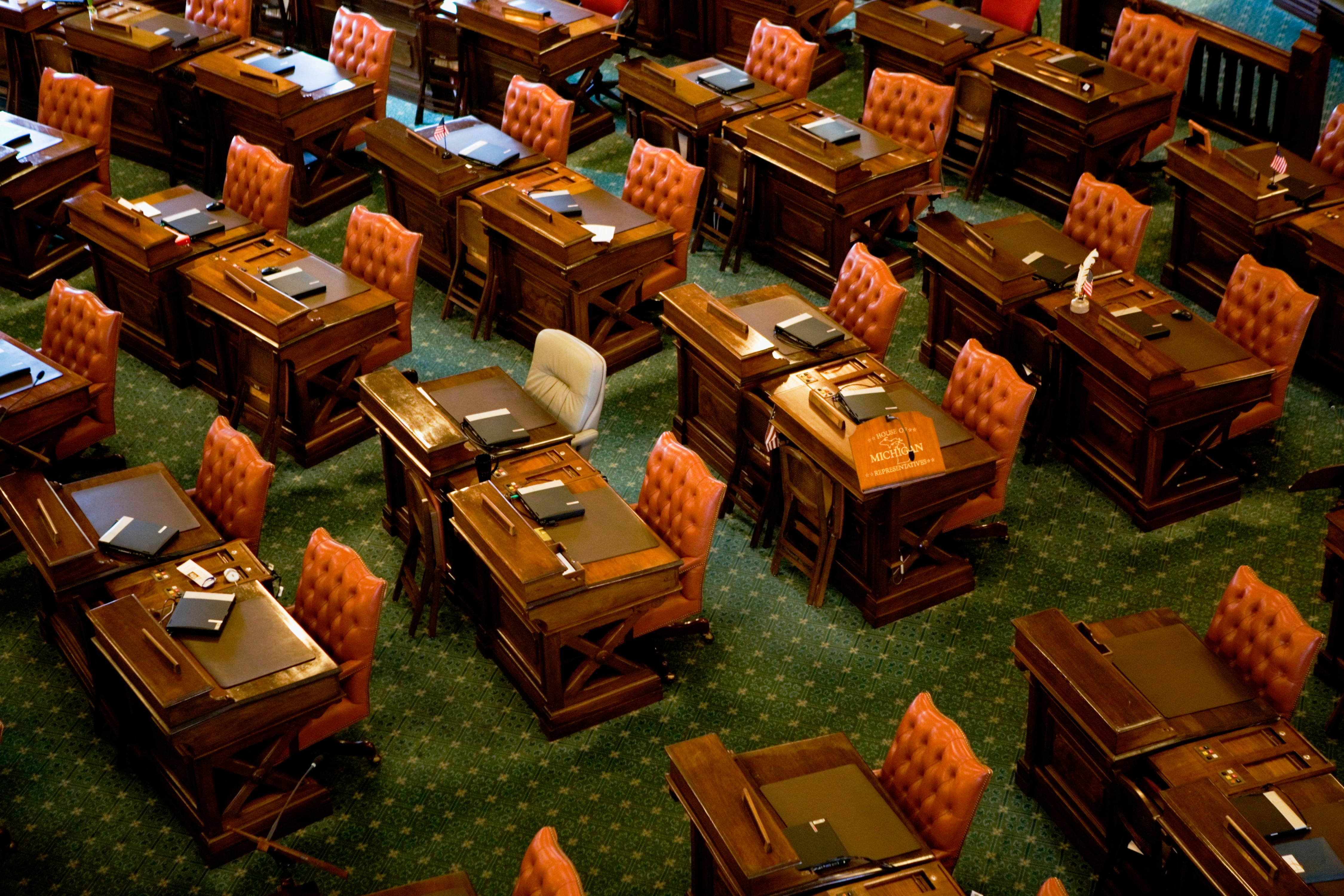Sign up for Chalkbeat Detroit’s free daily newsletter to keep up with the city’s public school system and Michigan education policy.
Dysfunction among Michigan Democrats has halted movement in the legislature during the remaining hours of the lame duck session, leaving the party’s remaining key education policy priorities in limbo.
Infighting that led two Democrats to boycott sessions in the House and the Senate on Wednesday left the party with too few votes to pass partisan initiatives, such as charter school reforms. All House Republicans also began boycotting the session last week, narrowing the chance bipartisan efforts might get enough votes to pass Wednesday.
“It’s a coordination problem,” Sarah Reckhow, professor of American politics and public policy at Michigan State University, said of the stalled bills. “People are still trying to strike deals and get some final things through. It’s classic politics and bargaining.”
Bob McCann, executive director of the policy advocacy organization K-12 Alliance of Michigan, said lame duck sessions should not necessarily be used to pass complicated school policies in a time crunch.
He added, “You can have any number of unintended consequences when every line of a bill is not properly considered.”
State Sen. Sylvia Santana, a Democrat from Detroit, told the Detroit News Wednesday morning she would be absent from the session because she didn’t want to “vote for the governor’s corporate welfare agenda while Democrats ignore priorities that impact urban communities.”
State Rep. Karen Whitsett, also a Detroit Democrat who has sided with Republicans in the past, said Tuesday she would not be in session until the House addresses changes to the minimum wage and sick leave.
House Republicans walked out last week over the same policies.
“Everyone in the different factions of the Democratic party has their own priorities and they are getting annoyed at the leadership when their priorities are not higher in the pecking order,” said Reckhow.
The House ended its day early around 3 p.m. Wednesday. It never moved past an attendance check-in.
The Senate was still in session by Wednesday evening.
After Wednesday, there is one remaining session day scheduled this year for the House and three for the Senate. Lawmakers may, however, ignore the rules and add more session days before Dec. 31, when Democrats will lose control of the state government.
House Speaker Joe Tate may issue a call of the House, which would force legislators to come back to the session.
Which education bills have yet to be approved?
The last major remaining education policy priority of Democrats is charter school reform.
One of four Senate bills would restrict for-profit education management organizations, or EMOs, from selling or leasing property above market rates to the charter schools they run. The other Senate measures would require oversight from charter school authorizers and make EMOs publicly post detailed audited financial disclosures.
Those bills passed votes in the Senate last week. They would need to pass votes in the House before being presented to Gov. Gretchen Whitmer, who likely would sign them into law.
A package of House bills would require charter schools to publicly list average teacher salaries as well as the names of their authorizers and management companies. The five bills already passed votes in the House and await approval in the Senate.
Legislation aimed at preventing school violence also appears to be stalled.
Five House bills call for more stringent protocols for responding to emergencies at schools, more mental health support for struggling students, and for schools to distribute information to families about safe firearm storage. All of the bills passed votes in the House and need approval in the Senate.
Senate bills that would make attending kindergarten mandatory and completing the Free Application for Federal Student Aid a graduation requirement are also waiting on votes in the House.
House bills that would make schools allow Indigenous students to wear traditional regalia to graduation ceremonies and clarify that Detroit Public Schools’ operating millage can pay off its School Loan Revolving Fund debt passed votes Dec. 13 after Republicans walked out. Both bills were referred to the Senate’s Government Operations Committee on Wednesday.
Hannah Dellinger covers K-12 education and state education policy for Chalkbeat Detroit. You can reach her at hdellinger@chalkbeat.org.







